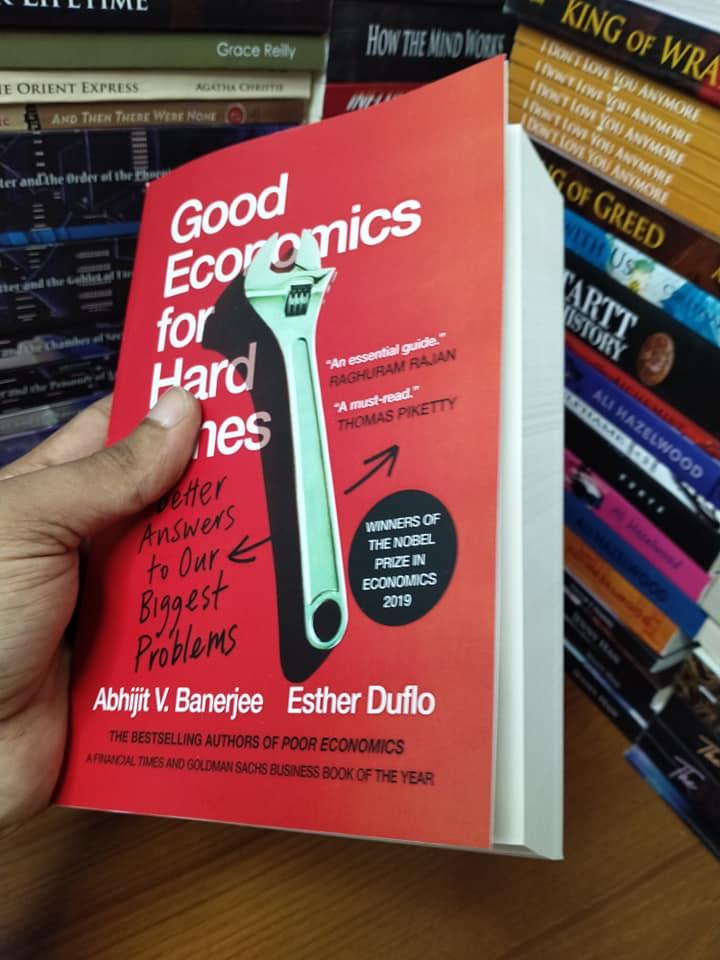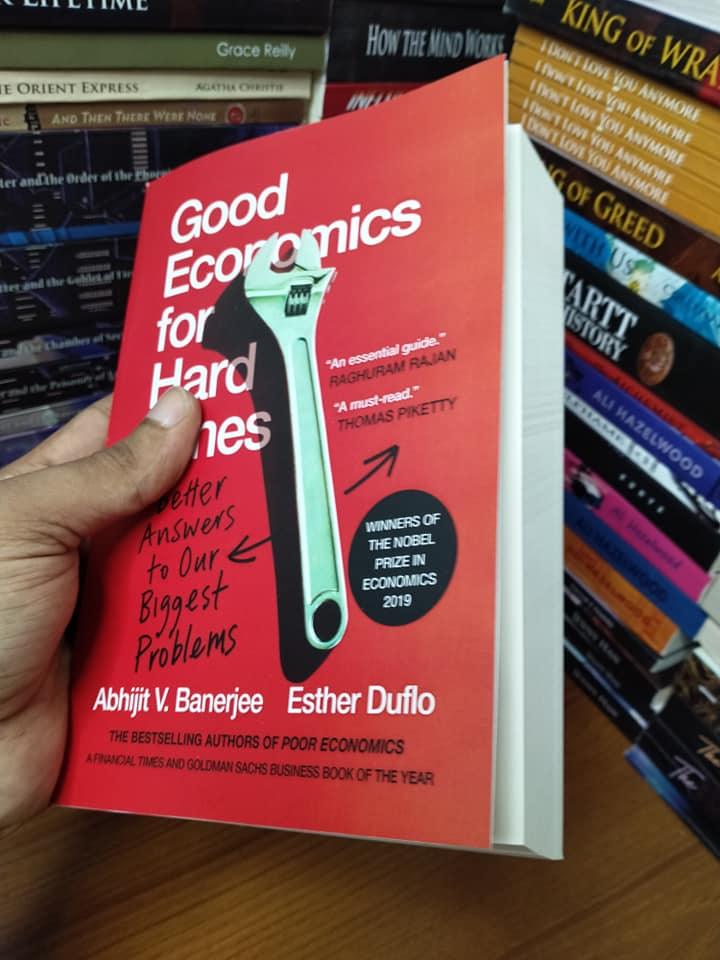Book Tank BD
Good Economics for Hard Times by Abhijit Banerjee and Esther Duflo
Good Economics for Hard Times by Abhijit Banerjee and Esther Duflo
🚚 ক্যাশ অন ডেলিভারি সারা বাংলাদেশ 📦
🕒 ৭২ ঘন্টার মধ্যে সারা দেশ এ ডেলিভারি.
Couldn't load pickup availability
Good Economics for Hard Times by Abhijit Banerjee and Esther Duflo
The author discusses many contentious issues including immigration, trade and growth. The authors start with two of the most charged issues of the day, namely the consequences of immigration to wages and the consequences of trade to employment opportunities. For the former, they give their arguments for the general economics consensus wisdom that immigration is a net positive and that immigrants contribute to society. They do cite those that disagree and their studies, namely the counterarguments of Borja, but then give further evidence to dispute him. From an economists lens they argue well but certainly the arguments that carry the day aren't based on reasoning. The authors also discuss trade policy and make the argument that if labor cannot frictionlessly move as a function of opportunity, classical capitalist arguments will fail in practice. The authors show that this is the case in the US and that the lack of labor mobility means that frictions of trade are real and require new policy thinking. The authors discuss big concepts like materialism and its use in framing economic goals via prioritizing GDP over other measures of wellness.
The authors highlight that when policy is framed it is framed in terms of maximizing output and such a narrow goal is questionable. Distributional concerns about where wealth gets concentrated is not discussed enough and maximizing output without concern for distribution is something that should be reconsidered. The authors discuss Robert Gordon's concerns that growth is structurally lower than last century when several foundational technologies enabled decades long windows of productivity growth. They also discuss the statistical measurement of productivity growth coming from the internet and communications revolution and that part of it could be hard to measure but in all, it is less than last decade; though there are some reasons to believe that could change for the better in the coming decades. The consequences of the ICT revolution is also concerns about automation and its consequences. Here the authors give both pictures but highlight that there should be concerns and that concepts like living wage don't have the empirical support as leading to higher well-being that is touted by techno optimists who don't want to deal with the labor problem.
📌 Genre: Self-help book, International Economics.
📚 সেলাই করা বাইন্ডিং
📖 Premium Quality Books.
➡️ Best Printing quality.
➡️ Eye Pleasing paper.
✅ Matt cover (Paperback)
Share


